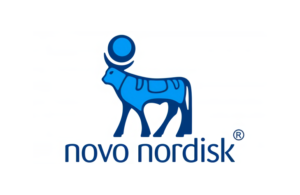 Novo Nordisk announced data that met primary endpoints from clinical trials investigating its once-weekly basal insulin icodec.
Novo Nordisk announced data that met primary endpoints from clinical trials investigating its once-weekly basal insulin icodec.
While meeting primary endpoints, the studies also demonstrated reduced injections. These injections decreased from seven to one per week with once-daily basal insulin. Novo Nordisk presented results at the 83rd Annual Scientific Sessions of the American Diabetes Association (ADA).
Data also demonstrated more insulin-naïve adults with type 2 diabetes with once-weekly basal insulin icodec achieved HbA1c targets. They recorded HbA1c below 7% without experiencing clinically significant or severe hypoglycaemia at 52 weeks. Novo Nordisk compared these subjects to once-daily basal insulin comparators at 26 weeks.
The ONWARDS 1 trial also achieved a secondary endpoint of superior time-in-range (blood glucose 70–180 mg/dL). Once-weekly basal insulin icodec hit 71.9% time-in-range, compared to 66.9% for once-daily basal insulin glargine. These recordings came between week 48 and 52. ONWARDS 1 hit comparable time below range (blood glucose <54 mg/dL) with once-weekly and once-daily reporting 0.3% and 0.2%, respectively. Both values fall in line with internationally recommended targets, Novo Nordisk said.
Dr. Julio Rosenstock, lead investigator, said the once-weekly basal insulin could potentially change the treatment of type 2 diabetes. Rosenstock serves as director of Velocity Clinical Research at Medical City Dallas and clinical professor of medicine, University of Texas Southwestern Medical Center.
More data from the Novo Nordisk trials
ONWARDS 1 also reported no statistically significant differences in mean weekly insulin dose or body weight change from baseline. Both treatment groups recorded low rates of clinically significant hypoglycaemia.
A statistically significantly higher proportion of participants achieved an HbA1C target below 7% without clinically significant or severe hypoglycaemia with once-weekly basal insulin icodec vs once-daily basal insulin glargine U100 (52.6% vs 42.6%).
Novo Nordisk said its ONWARDS 3 trial reported rates of clinically significant or severe hypoglycaemia at 0.31 events per patient-year exposed and 0.15 events per patient-year exposed to insulin icodec and insulin degludec respectively, at weeks 0–31.
In this trial, the estimated proportion of participants achieving an HbA1C target below 7% without clinically significant or severe hypoglycaemia was statistically significantly higher with once-weekly basal insulin icodec vs once-daily basal insulin degludec. There were no significant differences in mean weekly insulin dose from week 24 to 26 or body weight change from baseline to week 26 between treatment arms. Novo Nordisk observed zero unexpected safety findings.
The company already submitted its once-weekly insulin icodec for regulatory review in the U.S., Canada, Europe, China, Australia, Switzerland and Brazil. Novo Nordisk expects regulatory decisions in the first half of 2024. Pending approval, it would become the first and only once-weekly basal insulin option for adults with diabetes.
“These data reinforce our confidence in the potential of once-weekly insulin icodec,” said Florian M.M. Baeres, corporate VP, global medical affairs at Novo Nordisk. “If approved, we believe this innovation – which would be the world’s first once-weekly basal insulin – could help people living with type 2 diabetes ready to start insulin treatment by reducing the number of injections needed.”

